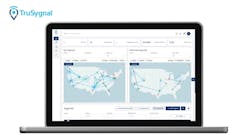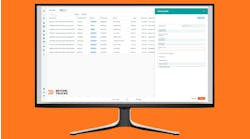Truckers larger and small will need to keep their belts tightened into the early part of next year before they can expect to see freight volumes start increasing, according to the latest industry analysis compiled by FTR Associates.
In a conference call with reporters last week, FTR analysts noted that for freight to start recovering, it must "reach a bottom first" and they predicted the bottom will be reached in the third to fourth quarter of this year. That will lead to a recovery in freight volume to begin sometime in the first quarter of 2010.
"I definitely think we're approaching the bottom now," said Noel Perry, founder and principle of Transportation Fundamentals, who also works for FTR Consulting Group as managing director and senior consultant. "Housing starts seem to be up somewhat, car and light truck sales are stabilizing, and consumer spending is both up and down – typical of the economic 'bouncing' one sees when you start reaching the bottom of an economic cycle," Perry added.
"The good news is we expect freight volumes to stabilize this summer as we reach the bottom of this recession," he noted. "The uncertainty is in the overall recovery as there are a substantial range of outcomes. Some economists believe we'll see no economic growth for two years, while others believe a rapid economic recovery could begin next year."
The problem, Perry explained, is the issue of "cumulative stress" on the trucking industry. Trucking has actually been in a recession for almost 21 quarters, he pointed out, exacerbated by the "overbuy" or trucks in late 2006 ahead of the 2007 emission regulations.
"Many carriers are now really short of cash due to the length of this recession," he continued. "Also, there's almost 250,000 under-used trucks out there competing for freight and that means profit margins will remain under pressure."
Perry said a big worry is what a spike in fuel prices might do to the freight market's recovery path – and that's a growing concern as diesel prices have jumped 16.7 cents over the past four weeks, while gasoline prices shot up 18.9% in the last month.
"A spike in fuel prices would really hurt," Perry explained. "It would push trucking's return to a profit-making cycle out a couple more months – because when the price of fuel rises, profits fall for truckers. It would be a real-short term negative."
That being said, though, he doesn't think it will happen. "If there was a dramatic increase in economic activity, it would change our outlook – but that's highly unlikely," Perry noted. "It takes an increase in demand to cause a [fuel price] spike – but worldwide demand still remains flat."



